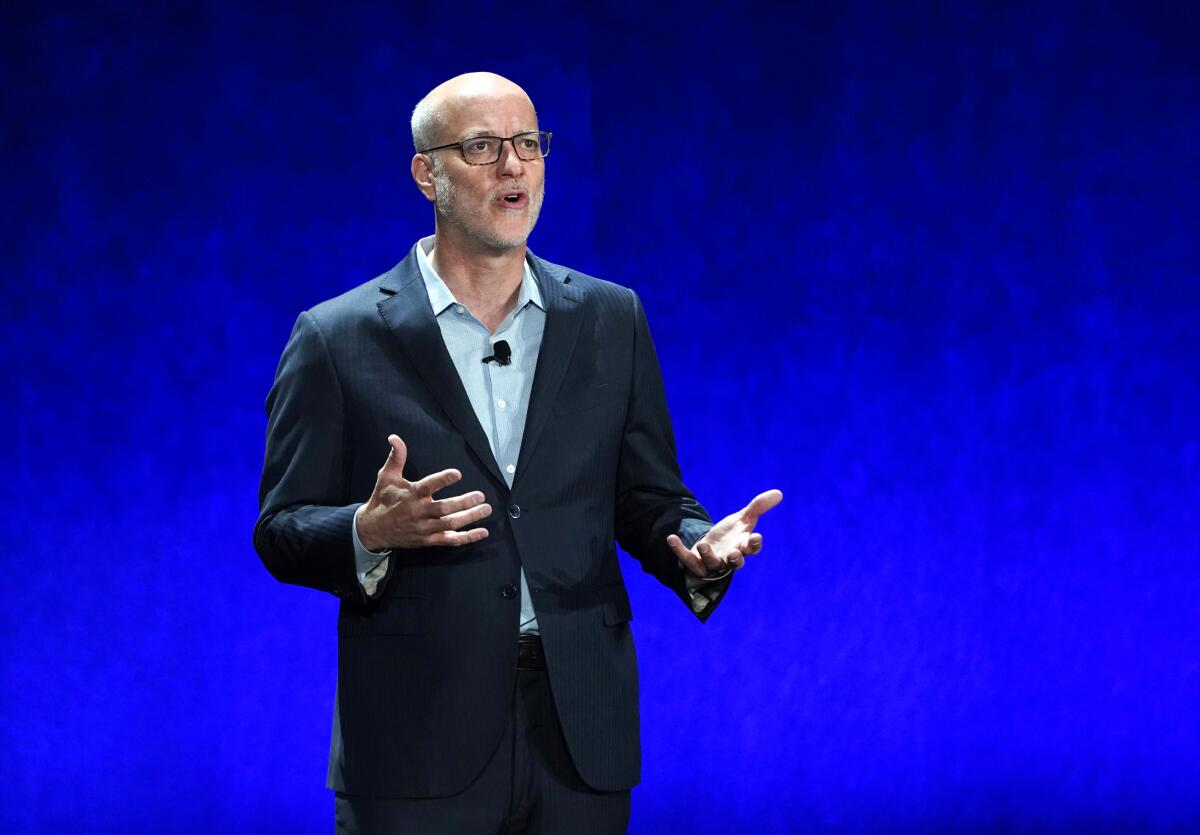Big screen champion is retiring as cinemas face uncertain future

The entertainment industry’s top advocate and lobbyist for moviegoing and cinema operators, who has served as the face of theatrical exhibition for years in both Hollywood and Washington, is exiting the stage.
John Fithian, president and chief executive of the National Assn. of Theatre Owners, the trade organization representing national movie theater chains and local mom-and-pops, is retiring May 1, the group said Monday.
The association, known informally and sometimes confusingly to outsiders as NATO, said it has begun the search for a successor.
For more than two decades, Fithian served as a tireless fighter for often beleaguered theater owners amid periods of dramatic change in the movie business.
During his tenure, he helped the industry navigate the transition from film to digital cinema and defended the so-called theatrical window — the weeks-long period of time separating a movie’s big-screen release from its debut on home video.
Everyone seems stressed.
Fithian’s retirement comes as theaters are still trying to recover from the most perilous time in cinema’s history, the COVID-19 pandemic, which closed theaters for months, upended Hollywood and threatened the survival of moviegoing as a broadly popular practice for consumers as prestige TV and streaming increasingly dominated the cultural conversation.
Movie studios put films directly onto streaming services and collapsed the theatrical window from an average of about 90 days to zero. Now studios wait around 30 to 45 days before making their big movies available for home viewing.
During the pandemic, NATO and Fithian fought in Washington for government relief for small theater operators. Nonetheless, some smaller players did not survive, including Pacific Theatres and Arclight Cinemas, and the big chains continue to struggle with the slow recovery of box office sales. Regal owner Cineworld Group recently filed for Chapter 11 bankruptcy protection in the United States.
The British film exhibitor has been struggling with a debt load of about $5 billion, as the pandemic and streaming pummel the box office.
Fithian has been a regular presence at CinemaCon, NATO’s annual gathering of theater owners and movie studios in Las Vegas. In press conferences, Fithian could get feisty with reporters who wanted to ask questions about the issues of the day — whether it was MoviePass, Sean Parker’s Screening Room startup or the rise of Netflix — while trying to highlight the resilience of the theatrical experience and the latest box office triumphs.
His retirement culminates 30 years with the association, which he first worked with as outside counsel in 1992. He became the group’s president in 2000.
“It is nearly impossible to sum up a career of three decades in a few sentences,” Fithian said in a statement. “I will leave that to others. But my highest goal was always to leave this organization and this industry stronger and more effective than I found it — and more importantly — to ensure that it remains strong and effective after I am gone.”
More to Read
Inside the business of entertainment
The Wide Shot brings you news, analysis and insights on everything from streaming wars to production — and what it all means for the future.
You may occasionally receive promotional content from the Los Angeles Times.













